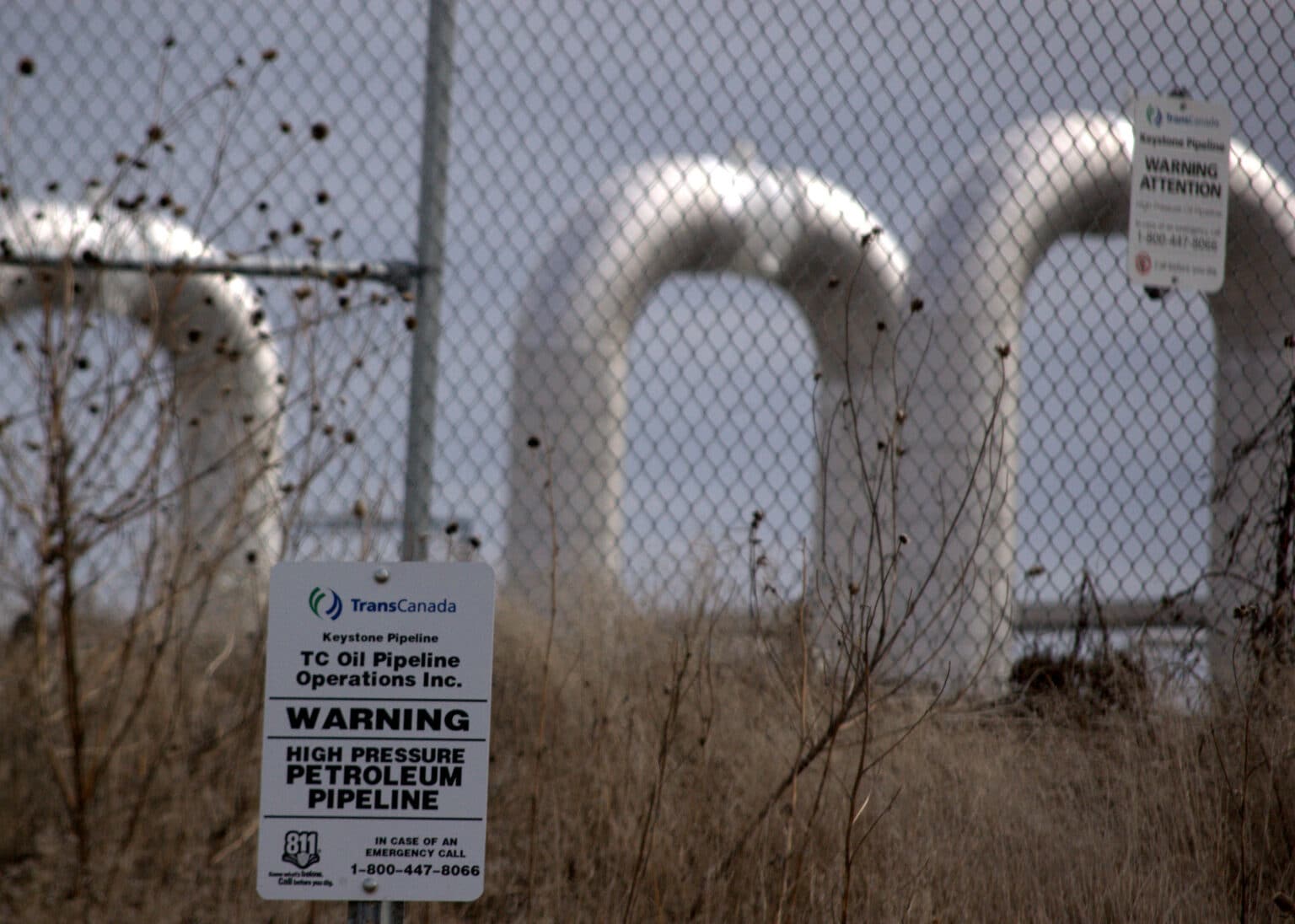The shelling had just started in Kyiv when Alberta Premier Jason Kenney found his angle on the Russian invasion. Now more than ever, he repeated in a series of tweets, we need to focus on Canadian energy.
“Now if Canada really wants to help defang Putin, then let’s get some pipelines built! Alberta stands ready, willing and able to supply the energy needed to displace Russia from global markets,” the premier tweeted on February 27. Echoing Kenney, Alberta’s government-funded promotional organization for oil and gas, the Canadian Energy Centre, has produced pieces like this one from David Yager declaring that “the West has virtue-signalled away its energy security,” and another article saying “Canada can step up to deliver the world reliable, responsible LNG.”
The Macdonald-Laurier Institute joined in, sharing an article from Christian Leuprecht with a quote tweet: “Make no mistake: Canadians who oppose construction of the Coastal Gaslink pipeline… and pipeline capacity to enable liquified natural gas exports from Canada’s East Coast to Europe, are aiding, abetting, and condoning #Putin’s behaviour.”
The argument goes that Alberta, as a rights-respecting democracy, can be a force for global stability. You see this line of reasoning across the oil and gas sector. There is a pervasive belief in the wholesome nature of Canadian energy and, by extension, the Canadian economy.
At a recent webinar Rocco Rossi, the president and CEO of the Ontario Chamber of Commerce, took a similar tack to Kenney. In his opening remarks, he claimed that “if we leave the energy transition to autocratic regimes, it will embolden them and allow them to have leverage that is simply not healthy for the world as a whole.”
However, the reality is that the money generated from Russian oil and gas is linked to the Canadian economy. Simply exporting more oil or gas, if that were even possible in a short timeframe, would not solve this problem.
Canadian financial institutions have significant investments in Russian oil and gas companies. As Stand.earth revealed in a recent press release over $110 million (USD) have been invested in Russian oil and gas by companies like Royal Bank of Canada, Bank of Montreal, Sun Life Financial and Manulife. To date, there has been no movement from these organizations to divest from Russia.
Manulife holds $14.7 million worth of stock and about $7 million worth of bonds in Gazprom. It also owns $39 million in Lukoil stock and nearly $600,000 in bonds.
Elsewhere there has been divestment from Russian oil. Alberta’s investment management company announced on February 28 that it would begin divesting what their CEO Evan Siddall referred to on Twitter as a “small number of Russian positions.” According to a March 1 statement, the organization has $99 million in direct and indirect exposure to Russian securities.
And as Russian vodka disappears from Canadian shelves, those who are enthusiastic to push the narrative of Canada’s “ethical oil” ignore the now widely reported use of Russian steel to build Canadian pipelines. Meghan Potkins with the Financial Post reported on the billionaire Russian oligarch Roman Abramovich having initially eluded major sanctions. Better known as the now-former owner of the Chelsea FC soccer team, he is also the largest shareholder in Evraz PLC, a steel manufacturing and mining business in Regina, Calgary and Edmonton. The company has provided the majority of the pipe needed to build the Trans Mountain expansion project — a pipeline supported by oil and gas companies and politicians alike. Canada has now imposed sanctions on Abramovich, but isn’t that shutting the barn door after the horse has run away?
Research from Carbon Brief has shown that Russia accounts for 17 percent of overall global gas output, and 12 percent of global oil output. Without significant foreign investment that includes the Canadian financial sector, Russia may not have had the healthy war chest that gave them the confidence to invade Ukraine. A BBC article from 2021 reports that in Russia oil and gas make up 39 percent of the federal budget revenue and 60 percent of Russian exports.
“Canadian financial institutions need to be part of the solution, not the problem,” Stand.earth International Programs Director Tzeporah Berman said. “We know that Russia’s illegal invasion of Ukraine has been underwritten by oil and gas money, and this new research shows how Canadian institutions are complicit in the bloodshed. RBC, BMO, and Manulife need to step up the pressure on Russia to end this conflict by immediately divesting from Rosneft, Lukoil and Gazprom. The federal government should also mandate divestment across the board for all Canadian financial institutions in the next round of sanctions.”
As much as Premier Kenney and other oil and gas boosters wish to promote Canada as the happy alternative to the Russian petrostate, Canadian financial institutions and our oil and gas services have already been tied to Russian interests. The profits that they have reaped from our economy can be hindered in future, but they can’t be taken back.
Subscribe to our newsletter
Stay up to date with DeSmog news and alerts







